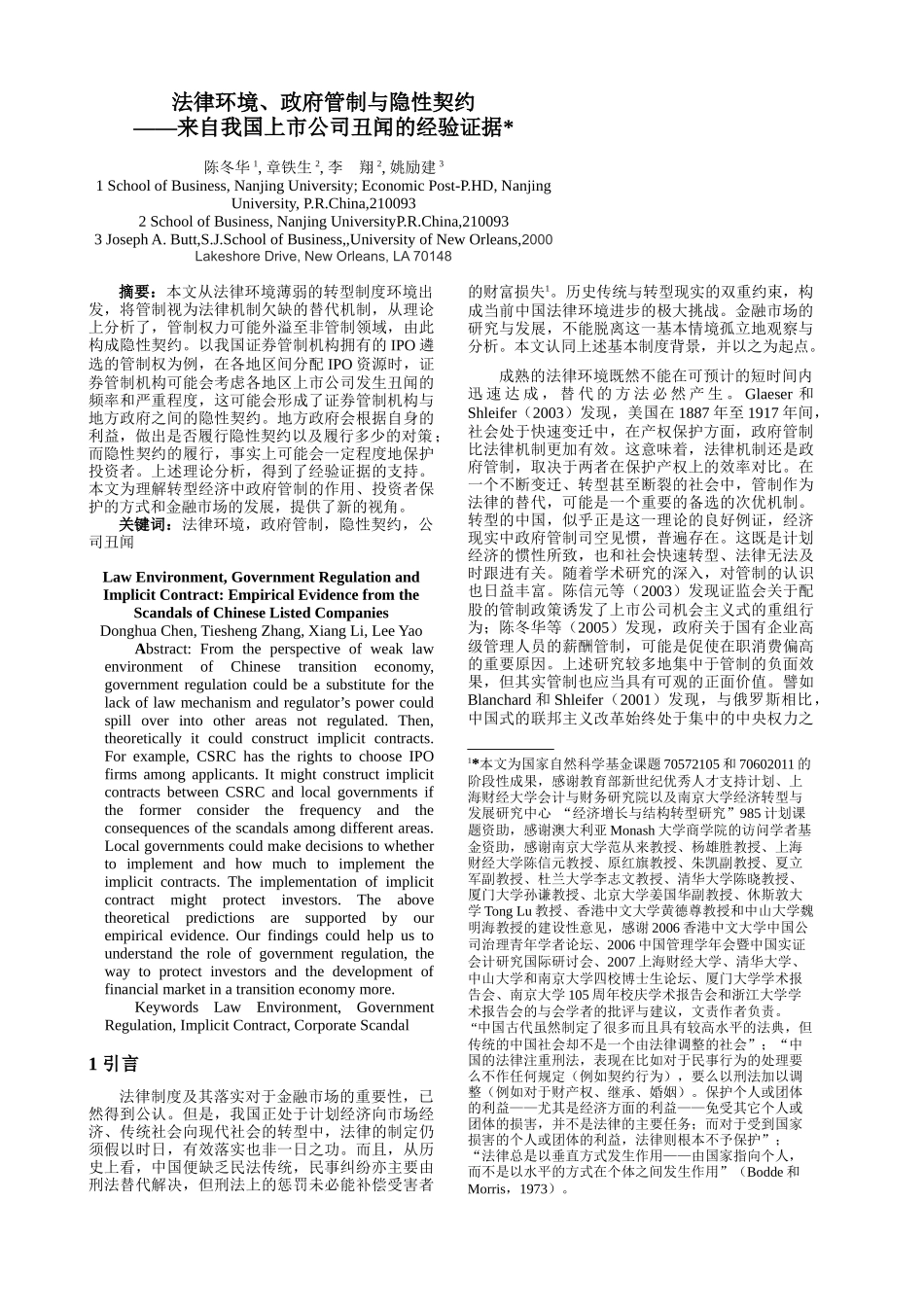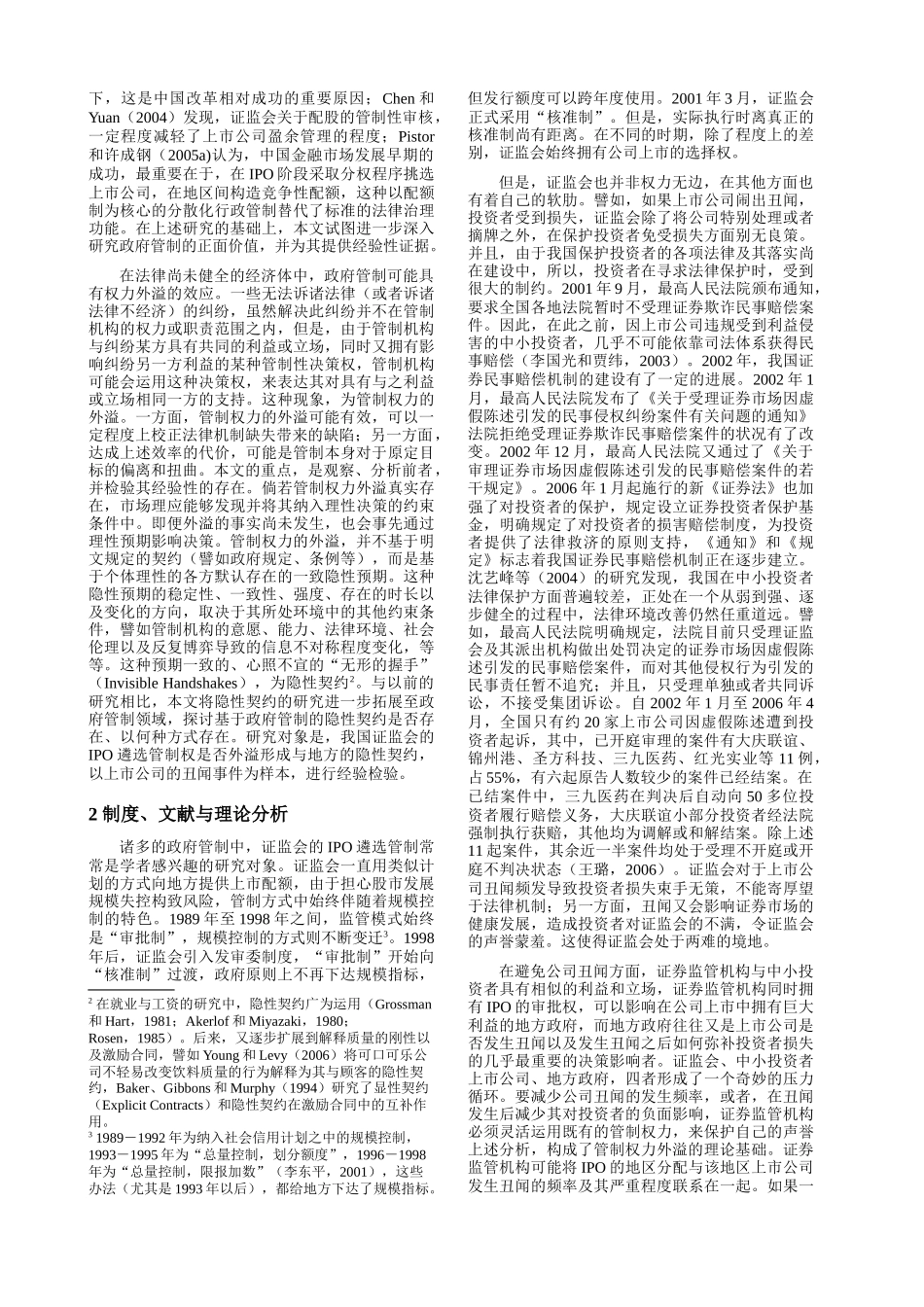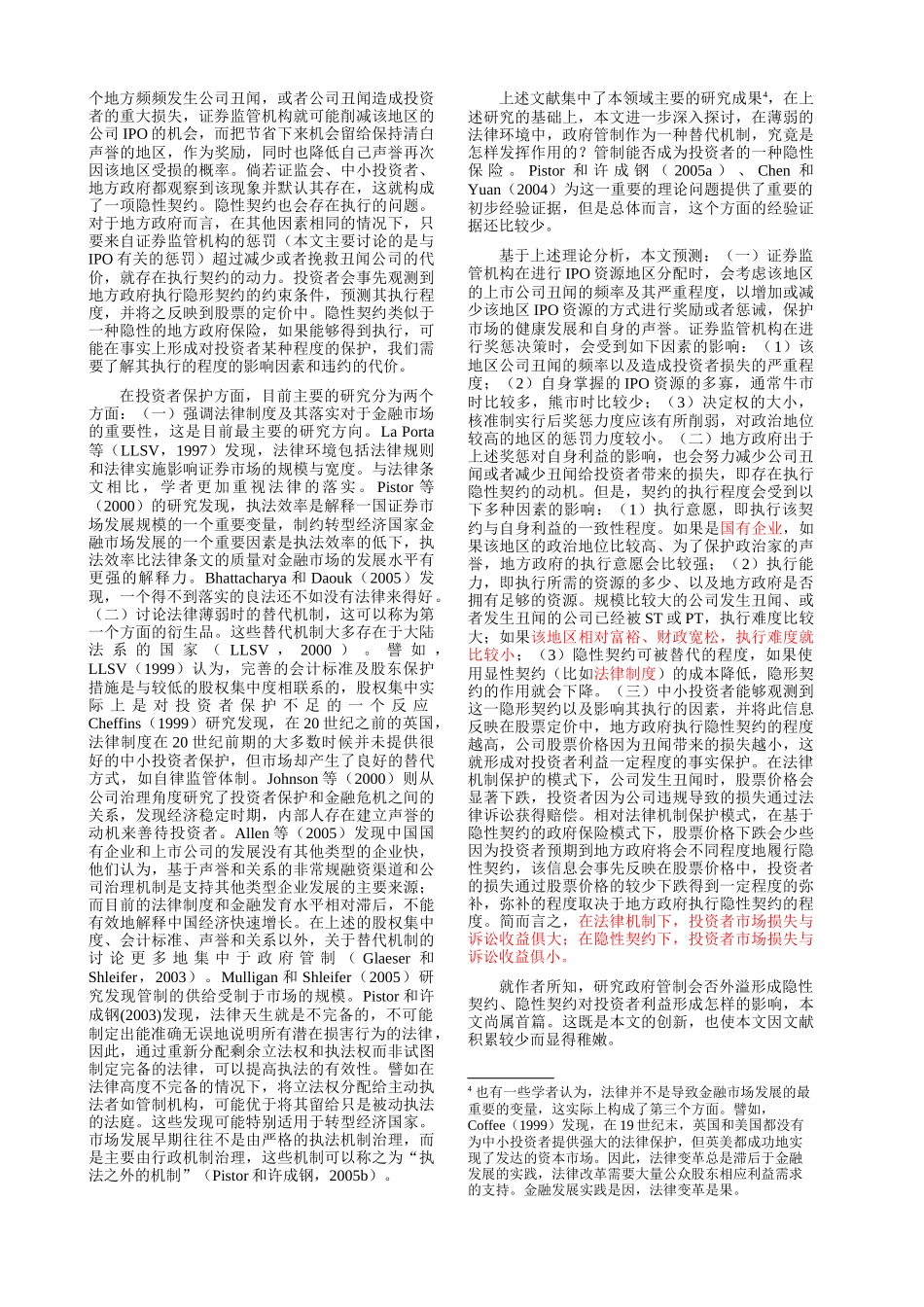法律环境、政府管制与隐性契约——来自我国上市公司丑闻的经验证据*陈冬华 1, 章铁生 2, 李 翔 2, 姚励建 31 School of Business, Nanjing University; Economic Post-P.HD, Nanjing University, P.R.China,2100932 School of Business, Nanjing UniversityP.R.China,2100933 Joseph A. Butt,S.J.School of Business,,University of New Orleans,2000 Lakeshore Drive, New Orleans, LA 70148摘要:本文从法律环境薄弱的转型制度环境出发,将管制视为法律机制欠缺的替代机制,从理论上分析了,管制权力可能外溢至非管制领域,由此构成隐性契约。以我国证券管制机构拥有的 IPO 遴选的管制权为例,在各地区间分配 IPO 资源时,证券管制机构可能会考虑各地区上市公司发生丑闻的频率和严重程度,这可能会形成了证券管制机构与地方政府之间的隐性契约。地方政府会根据自身的利益,做出是否履行隐性契约以及履行多少的对策;而隐性契约的履行,事实上可能会一定程度地保护投资者。上述理论分析,得到了经验证据的支持。本文为理解转型经济中政府管制的作用、投资者保护的方式和金融市场的发展,提供了新的视角。关键词:法律环境,政府管制,隐性契约,公司丑闻 Law Environment, Government Regulation and Implicit Contract: Empirical Evidence from the Scandals of Chinese Listed Companies Donghua Chen, Tiesheng Zhang, Xiang Li, Lee YaoAbstract: From the perspective of weak law environment of Chinese transition economy, government regulation could be a substitute for the lack of law mechanism and regulator’s power could spill over into other areas not regulated. Then, theoretically it could construct implicit contracts. For example, CSRC has the rights to choose IPO firms among applicants. It might construct implicit contracts between CSRC and local governments if the former consider the frequency and the consequences of the scandals among different areas. Local governments could make decisions to whether to implement and how much to implement the implicit contracts. The implementation of implicit c...


